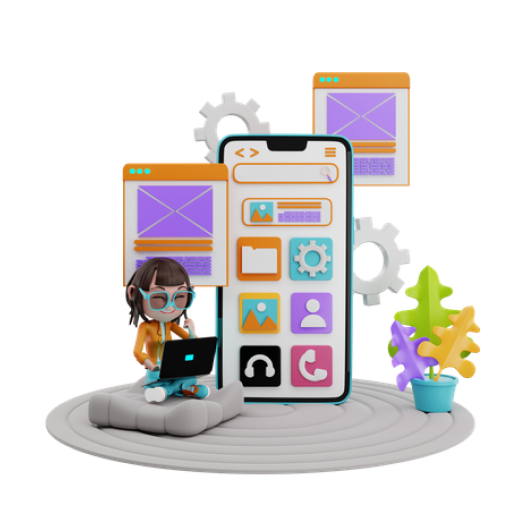Hybrid app development is a method of creating mobile applications that run on multiple platforms, such as iOS and Android, using a single codebase. These apps are developed using web technologies such as HTML, CSS, and JavaScript, and then packaged into native containers that provide access to native device features and APIs. The resulting apps can be installed on devices just like native apps, but run within a web view that provides the necessary runtime environment for the web code.
The advantage of hybrid app development is that it enables developers to write the app once and deploy it on multiple platforms, rather than having to write separate code bases for each platform. This can result in faster development times, lower costs, and the ability to reach a wider audience with a single codebase.
However, hybrid app development can also have some disadvantages compared to native app development, such as lower performance and less native-like user experiences, as the app is running within a web view and relies on the underlying web runtime for its functionality

Flutter is a UI toolkit for building native-looking apps for iOS, Android, and the web. It uses the Dart programming language, and provides a fast and responsive app development experience with a rich set of customizable widgets and tools.
React Native is a popular framework for building native-like apps using React, a popular JavaScript library for building user interfaces. It allows developers to write platform-specific code in addition to shared code, and provides access to native device features through APIs.
Xamarin is a Microsoft-owned platform for building cross-platform apps that run on iOS, Android, and Windows using C# and .NET. It provides access to native APIs and features, and enables developers to share code across platforms.
Ionic is a popular framework for building hybrid apps that provides a comprehensive set of UI components, APIs, and tools for building high-performance apps. It is built on top of Angular, a popular JavaScript framework, and uses Apache Cordova for accessing native device features.
Cordova is an open-source platform that allows developers to build hybrid apps using HTML, CSS, and JavaScript. It provides a native container for the web code, and access to native device features through plugins.
These are some of the most popular hybrid app development platforms, but there are many others as well, each with its own strengths and weaknesses. The choice of platform will depend on a variety of factors, including the specific requirements of the app, the skills and experience of the development team, and the overall development process.
There are several advantages to building hybrid applications, including:
One of the biggest advantages of hybrid apps is that they can run on multiple platforms, such as iOS and Android, using a single codebase. This saves developers time and resources, as they only have to write the code once, rather than creating separate codebases for each platform.
Building a hybrid app is typically less expensive than building separate native apps for each platform. This is because a single codebase can be reused for multiple platforms, reducing development costs.
Hybrid app development is typically faster than native app development, as developers can use existing web technologies and libraries to build the app. Additionally, there is often less overhead associated with testing and deploying a hybrid app, as the codebase is the same for all platforms.
Hybrid apps have access to native device features, such as camera, accelerometer, and GPS, through the use of native plugins. This enables hybrid apps to offer functionality and user experiences that are similar to native apps.
Because hybrid apps use a single codebase, they are easier to maintain and update than native apps, which require separate codebases for each platform. This can result in faster bug fixes and more frequent updates, which can improve user engagement and retention.
Our hybrid app development team is dedicated to offering premium solutions that meet your business needs. The Android app development and iOS app development processes involve a comprehensive framework to create responsive, result-oriented, and proactive apps. Its architecture concentrates on seamless integration in the digital ecosystem featuring the latest Android API level updates and the latest iOS OS updates.
Here are some general factors to consider, that makes us different from others in hybrid app development:
We are known for delivering successful projects to clients for developing custom hybrid applications, with the proven track record of shipping quality products within client’s budget and timeline.
We have niche capabilities in the technologies and tools that are required for developing high quality hybrid applications. We are familiar with popular and demanding frameworks like Flutter, React Native,, Xamarin, Ionic, and PhoneGap.
We collaborate with our clients throughout the development process and are always responsive to the client’s needs. Also, have a high level of mutual understanding with no communication gap which helps us in delivering the project clearly and effectively.
We focus on high priority on quality and have a rigorous testing and quality assurance process in place before delivering the projects to the customers.
We offer ongoing support and maintenance after the app is launched or delivered. We are always available to help you troubleshoot any issues and make updates and improvements as needed.


Hey There! Let’s Get Started